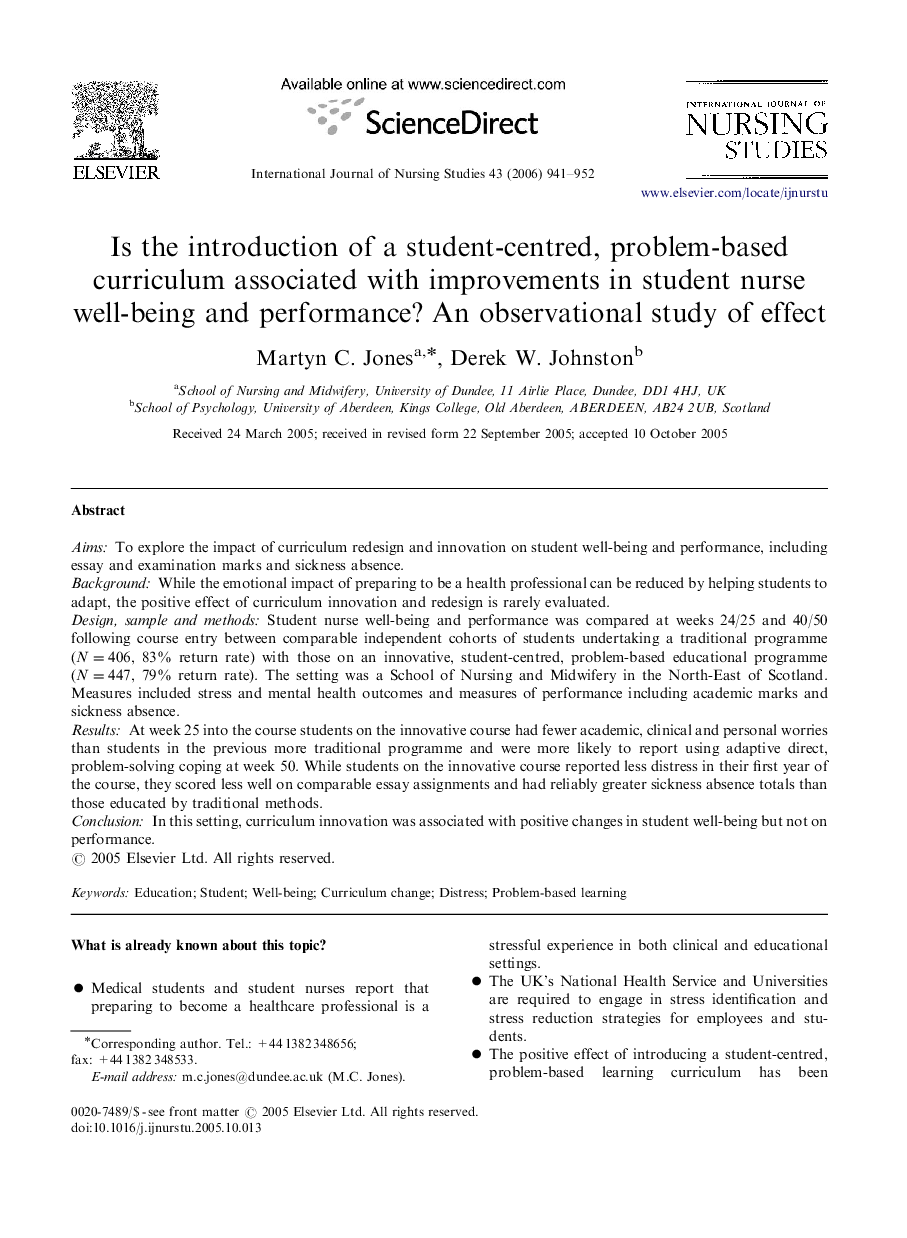| Article ID | Journal | Published Year | Pages | File Type |
|---|---|---|---|---|
| 1077890 | International Journal of Nursing Studies | 2006 | 12 Pages |
AimsTo explore the impact of curriculum redesign and innovation on student well-being and performance, including essay and examination marks and sickness absence.BackgroundWhile the emotional impact of preparing to be a health professional can be reduced by helping students to adapt, the positive effect of curriculum innovation and redesign is rarely evaluated.Design, sample and methodsStudent nurse well-being and performance was compared at weeks 24/25 and 40/50 following course entry between comparable independent cohorts of students undertaking a traditional programme (N=406N=406, 83% return rate) with those on an innovative, student-centred, problem-based educational programme (N=447N=447, 79% return rate). The setting was a School of Nursing and Midwifery in the North-East of Scotland. Measures included stress and mental health outcomes and measures of performance including academic marks and sickness absence.ResultsAt week 25 into the course students on the innovative course had fewer academic, clinical and personal worries than students in the previous more traditional programme and were more likely to report using adaptive direct, problem-solving coping at week 50. While students on the innovative course reported less distress in their first year of the course, they scored less well on comparable essay assignments and had reliably greater sickness absence totals than those educated by traditional methods.ConclusionIn this setting, curriculum innovation was associated with positive changes in student well-being but not on performance.
